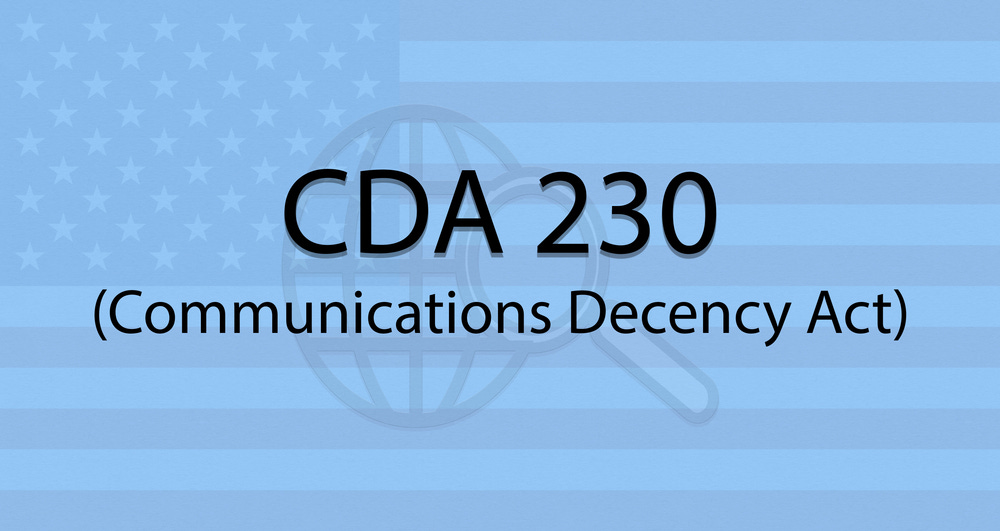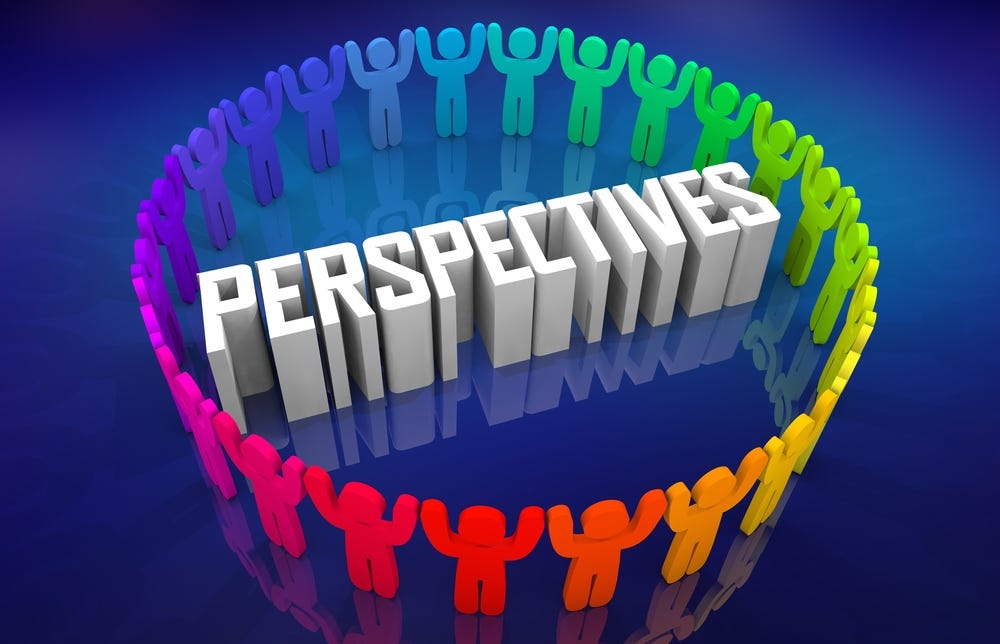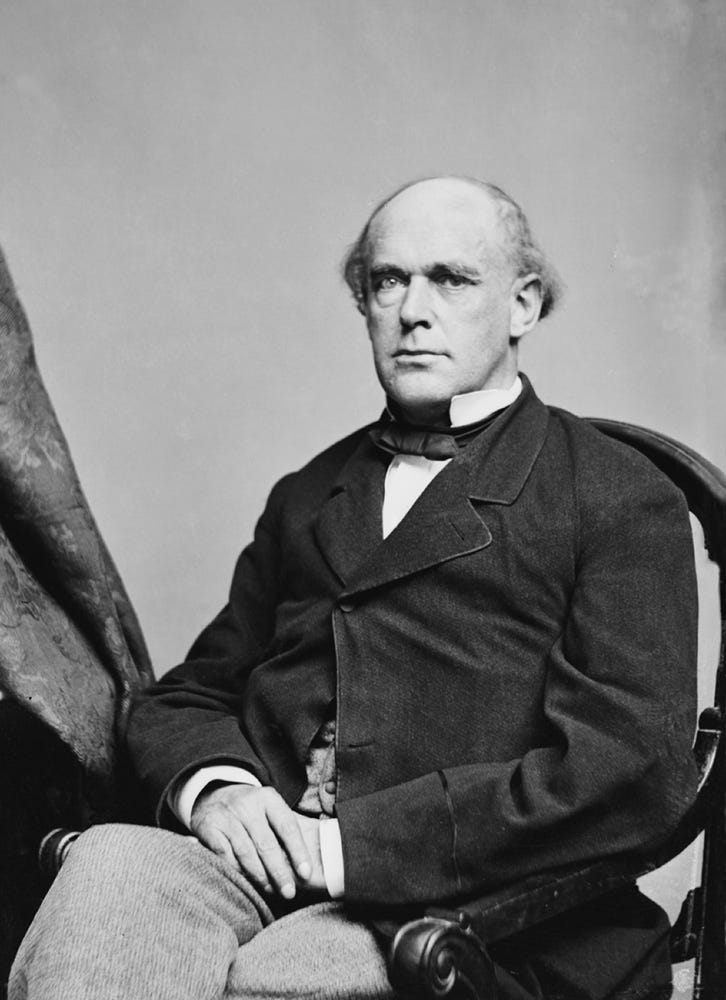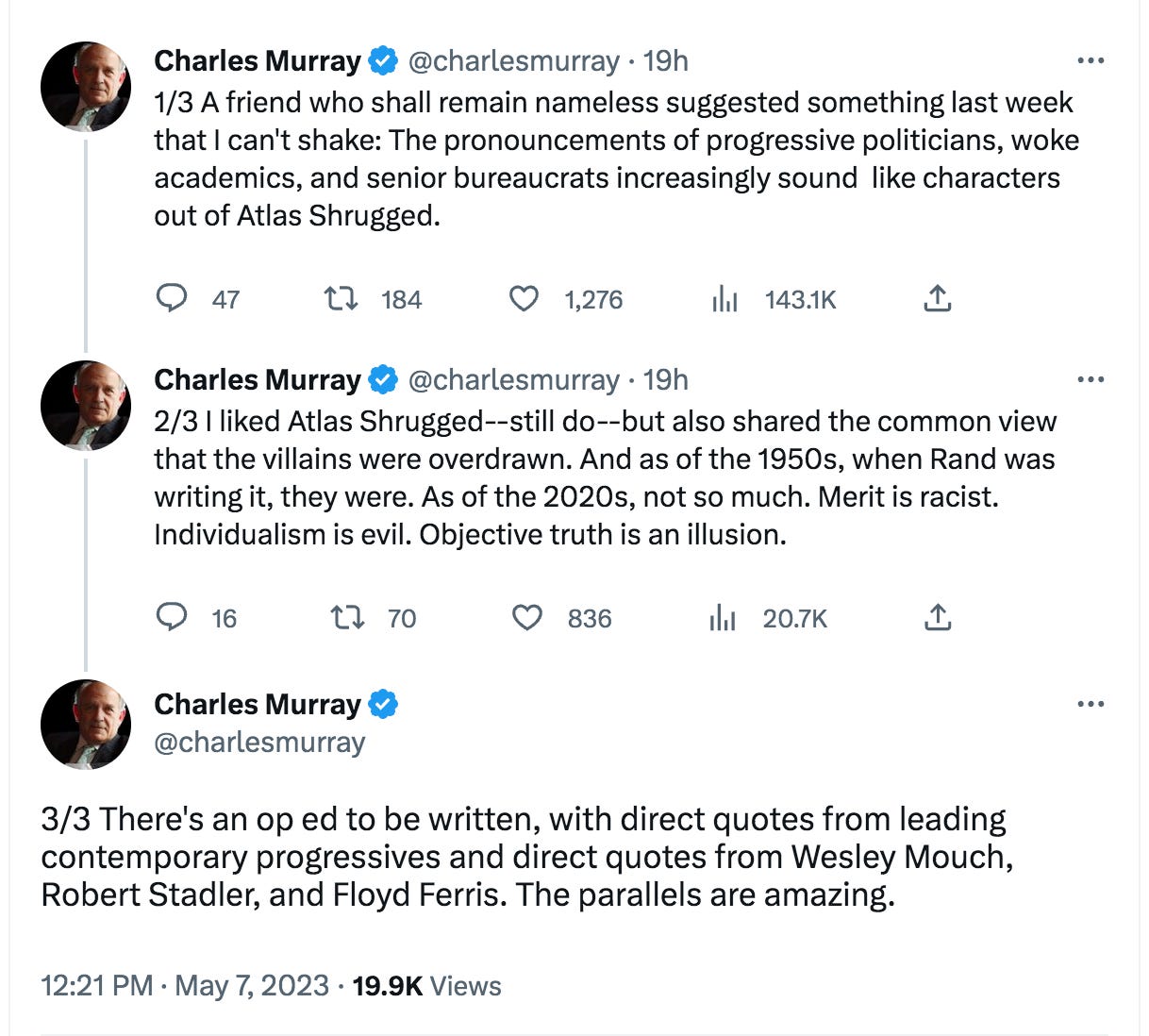E-Pluribus | May 9, 2023
The "internet's secret weapon"; the sorry state of viewpoint diversity on toiday's campuses; and free speech is getting a boost in Ohio.
A round-up of the latest and best writing and musings on the rise of illiberalism in the public discourse:
Aaron Terr: The Free Speech Case for Section 230
Much literal and virtual ink has been spilled over “Section 230”, but how many really understand its impact? According to Aaron Terr at Persuasion, 230 is an essential element of retaining true freedom in the age of the internet.
[T]he attacks on Section 230 miss one important thing: it’s vital to free speech and innovation on the internet.
To understand why, you first have to understand the context in which the law was introduced. Congress passed Section 230 as part of the Communications Decency Act of 1996 in the wake of two court decisions that addressed when online services could be held liable for third-party content.
The first case involved the early internet giant CompuServe, which hosted numerous discussion forums. Because CompuServe did not moderate what users posted in the forums, the court ruled that it acted like a newsstand or bookstore rather than like a publisher. CompuServe was therefore not liable for defamatory statements posted on its forums. There was a catch, however: this was only the case so long as the company was unaware of potentially illegal content. If someone informed the company of specific instances of illegal content, CompuServe would become liable for it.
The second court case came a few years later, when the brokerage firm Stratton Oakmont sued CompuServe’s competitor Prodigy in New York state court for libel, based on user posts on Prodigy’s message board accusing the company of fraud. Unlike CompuServe, Prodigy did exercise editorial control over its message boards by moderating posts. In the court’s view, that made Prodigy less like a newsstand and more like a newspaper legally responsible for everything in its pages.
[ . . . ]
If adopted by courts more widely, these two rulings threatened to stall the internet’s growth and cap its potential as a democratizing force for free expression.
Enter Section 230. It frees websites from the specter of crushing liability for hosting or refusing to host third-party speech. So if someone defames you on Twitter, you can sue that person, but you can’t sue Twitter. Widespread focus on social media also makes it easy to forget all the other online services Section 230 protects—crowdsourced encyclopedias, Amazon and Yelp reviews, dating sites, crowdfunding platforms, online marketplaces like eBay and Etsy, Substack-style publishing, blog and newspaper comment sections… the list goes on.
Read it all.
Amy Lai: The Stifling of Viewpoint Diversity and Open Inquiry in American Higher Education
At Heterodox Academy, Amy Lai reviews North Korean defector Yeonmi Park’s book on her experiences with the higher education system here in the United States. While some have found fault with Park’s parallels of US colleges and universities to the repressive system in her home country, Lai says that the criticism is overblown and Park makes legitimate points about the formers’ shortcomings.
Yeonmi Park, a North Korean defector who moved to New York City in 2014, rose to fame and garnered much sympathy from the West after her speech at the One Young World Summit that same year and her subsequent activism. Ever since her critique of American higher education, which compared its “woke” culture to the state propaganda in her country of birth, many have discredited her views as something born out of ignorance about American culture. Worse still, some even accused her of pandering to the right wing for personal gain.
[ . . . ]
On the basis of this book alone, I conclude that while a reasonable reader might strongly disagree with Park’s arguments, most criticisms levied against her are largely undeserved. The book thoroughly demonstrates her knowledge of American history and contemporary culture as well as the histories of North Korea and China, which are all crucial to her arguments and can be obtained only after diligent research. The book also reveals a keen familiarity with Western philosophy, which Park draws upon to explain the importance of freedom of speech, critical thinking, and the reasoning faculty. Most important, Park emphasizes multiple times that she uses her observations of North Korea to “illuminate,” rather than exaggerate, what she considers to be the crisis of American society. This is indeed what the book does. In other words, no part of the book suggests that America or Columbia University is as bad as North Korea, let alone the idea that the former is worse than the latter. While many readers might disagree with Park’s arguments, assuming the truth of her account, none of her arguments appears to have been made in bad faith. In fact, one would be hard-pressed to find any outrageous or improperly made statement.
Even if some of the classroom incidents at Columbia described in the book might not have been common on American campuses, they still can help illuminate what might have gone wrong in today’s academia and things that can be done to avert what seems to be a troubling tendency.
Read it all here.
Wall Street Journal Editorial Board: Ohio May Start a Free Speech School
Few of us could pick Salmon P. Chase out of a line up, but legislators in Ohio are invoking the name and legacy of their former governor and Supreme Court Chief Justice for a special school within Ohio State University with a focus on free speech, writes the Wall Street Journal Editorial Board. While one might hope that all of OSU would be committed to fundamental Constitutional principles, such a proposal could nonetheless contribute momentum to the movement to beat back illiberalism on campuses nationwide.
Free speech on campus has been making a modest comeback of late, as more schools look for ways to reintroduce classical liberal principles of civic debate and expression. The latest step forward is in Ohio, where the Legislature is planning a new school for free expression and academic inquiry in Columbus.
Lawmakers on Wednesday introduced a bill to create the Salmon P. Chase center for civics, culture and society at Ohio State University. Named for the former Ohio Governor who was also a Chief Justice of the U.S. Supreme Court, the school would be an independent academic unit on campus that would focus on the “historical ideas, traditions and texts that have shaped the American Constitutional order and society.”
The school is intended to encourage greater academic diversity. It will “create a community dedicated to an ethic of civil and free inquiry, which respects the intellectual freedom of each member,” according to the legislation. Classes will include lessons on the “books and major debates which form the intellectual foundation of free societies.” A school with a similar writ will be created at the University of Toledo College of Law.
Read the whole thing.
Around Twitter
The Foundation for Individual Rights & Expression isn’t shying away from incendiary First Amendment cases:
Charles Murray reflects on the prescience of Ayn Rand:
And finally, speaking of developments that sound like they are pulled from dystopian fiction, via the Free Press:









